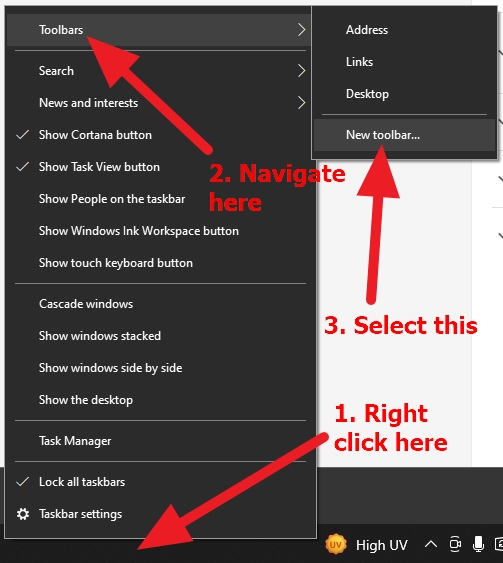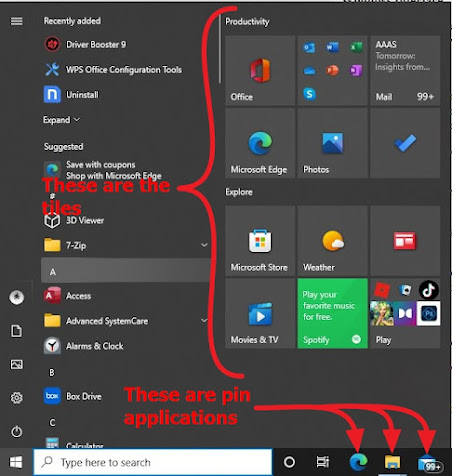Introduction to center mental health consultant
The purpose of this power point is to provide you an overview of mental health and wellness program and services available at the Gerald R. Ford Job Corps Center. This power point will also show you how to make a self-referral and teach you the basic skills for identifying and responding to a mental health crisis.
Introduction to Mental health and wellness services
Career Preparation Period Presentation for students.
Part 1. Mental Health and Wellness Program and services.
Part 2. Basic Skills in identifying and Responding to a Mental Health Crisis.
Part 1. Mental Health and Wellness Program Services.
The Job Corps mental health and wellness program is here to help you learn and develop healthy lifestyle choices to increase your chances of completing the program, getting a job, and remaining employed.
The program can help you learn ways to deal with stress, depression, anxiety, low self-esteem, and many other things that can get in the way of being successful and employed.
Available Services
The mental health and wellness program provides:
- Assessments
- Mental Health Promotion and Education
- Treatment
Let’s talk about each one of these so you have a clear idea of what is available to you.
Assessment
On admission all students complete the Social Intake Form. This form helps us know some of the challenges you have faced and how we can best help you. Your CMHC may follow up with you after you have completed this form in order to explore ways to support you while you are in Job Corps.
Why Talk With a Center Mental Health Consultant (CMHC)?
If you are having feelings, thoughts, or behaviors that seem to get in the way of your success, your CMHC may be able to help you figure out why.
If you have a mental health condition, your CMHC can help you determine if you need additional assistance or an accommodation.
Mental Health Promotion and Education
Your CMHC can provide Information and education on how to maintain good mental health, like managing stress and good sleep habits. Information and education on mental health topics like depression, anxiety, and how it impacts employability. Opportunities for you to learn how to make healthy decisions now and once you complete Job Corps.
Treatment
The mental health and wellness program also includes treatment such as,
Short-term counseling
We provide mental health check-in visits to help you learn skills and strategies on managing problems or dealing with mental health issues that may make it hard for you at Job Corps and in the workplace.
Substance use issues.
Often mental health issues and substance abuse go hand-in-hand. Along with the TEAP Specialist, mental health services can help you understand this relationship and make healthy choices for yourself.
Medication referrals.
Sometimes, in addition to learning new skills and strategies, medication can be helpful in managing mental health symptoms.
Off-center referrals
If needed, we can arrange for additional services off-center at the local community mental health center or specialized support services.
The mental health and wellness program also includes;
Help during a crisis. Crises can include many things, from a death in the family to thoughts of suicide. Your CMHC is trained to help you during a crisis.
What is M S W R? (Medical Separation With Reinstatement)
Sometimes a student has significant health problems that interfere with participation in training, may be too complex to manage while in Job Corps, or are unusually costly. Those students may separate from Job Corps in an M S W R status and be reinstated at a later date.
MSWR may be used if the health care provider estimates that the student’s condition will be resolved and the student will be able to return to the center within 180 days. Maximum of six months.
Virtual Appointments
- A couple of ways to make a virtual appointment.
- Call or email the Health and Wellness Center and request to make an appointment to see the CMHC.
- Ask your career counselor to send a referral to the CMHC for you.
- If you have any questions, Please reach out to your instructor or counselor.
Introduction.
Being a Job Corps student can be an exciting time in your life and an opportunity for growth. However, you or one of your friends may also have experiences that are difficult to manage alone. You may be coping with relationship difficulties, family problems, financial concerns, significant stress, grief or loss, or struggling with one of a variety of mental health issues.
Asking for Help
Many people have a hard time asking for help, because we assume that we should be able to handle problems on our own. However, there are some situations where having a helping hand can be key in overcoming those problems. We can all help each other by knowing how to identify and respond to a mental health crisis.
Mental Health Crisis.
Crisis of the Mind or Spirit
- Experiencing thoughts of suicide. Experiencing anger, aggression, and/or the threat of violence.
- Let’s briefly discuss each one of these before we talk about what to do if you or someone else is having a mental health crisis.
Thoughts of Suicide
- Sometimes people experience such overwhelming emotional pain that they believe ending their life is the only way to feel better.
- Most suicidal persons desperately want to live and have tried to communicate their pain to others.
- Know the warning signs and take all signs of suicidal behavior seriously.
- Suicide is preventable.
Warning Signs of Suicide
- Below are some examples of warning signs of suicide.
- Threatening to hurt oneself or talking about wanting to end one’s life.
- Looking for ways to end one’s life.
- Seeking access to pills, weapons, or other means of ending one’s life.
- Talking or writing about death, dying, or suicide.
- Expressing feelings of hopelessness, uncontrollable anxiety, rage, or revenge.
- Engaging in reckless or risky behaviors.
- Withdrawing from family and friends.
- Expressing a lack of purpose and meaning in life, no reason for living.
- Giving away personal items, changing a will.
- Loss of loved one, job, pet, home, independence.
Anger, Aggression, Threat of Violence
- Anger is a feeling coming from how we see a situation (often as wrong, unfair) and our ability to cope.
- Aggression is a behavior that is sometimes caused by anger—people may act out their angry feelings by threatening to harm others.
- Anger and aggression can lead to threats of violence.
Threat of Violence
- Threat of violence warning signs include.
- Frequently reporting feeling disrespected.
- Threatens to hurt others.
- Withdraws from friends and feels rejected or alone.
- Inappropriate fascination with guns and/or weapons or other violent incidents.
- Depression: comments about suicide.
- Writing or artwork that indicate extremes of hopelessness, social isolation, despair, rage, death.
- Talks about bringing weapons on center.
If you are experiencing a mental health crisis, a few options is available to help. These include,
- Let a staff member know. This could be your counselor or any staff member you feel comfortable talking to.
- Let a friend know and ask them to get help for you.
- Contact the Health and Wellness Center.
- Call a crisis hotline: 1-800-273-TALK.
- 988 – three-digit hotline for mental health emergency.
- TEXT LINE 741741.
- If off-center, go to the nearest emergency room or call 911.
If you see a suicides' warning sign, make sure to ask the person some questions
- I’ve noticed that you’ve mentioned feeling hopeless a lot lately. Are you feeling okay?
- Sometimes when people feel like that, they are thinking about suicide. Are you thinking about suicide?
- Do you want to hurt yourself or someone else?
- Are you thinking about ending your life?
Listen and Persuade
Listen to friends who share upsetting thoughts or display troubling, harmful, or dangerous behaviors, and encourage them to seek help from their residential advisor, counselor, instructor, health and wellness center, or other trusted center staff member.
- I’m really concerned about you, and I want you to know that help is available to get you through this.
- Will you go with me to talk with your counselor?
- Would you like me to tell your counselor that you would like to talk to him or her?
- I want to contact the Health and Wellness Center to get more help. Will you contact them with me?
If the Person Won’t Agree to Get Help
If you are concerned someone is suicidal or may hurt someone else,
- Don’t worry about breaking trust or being disloyal.
- Don’t worry that you may not have “enough” information to call for help.
- This is not “snitching.”
- Get help!
Scenario. How to respond to suicidal thoughts
Morgan is an 18-year-old woman who was only able to finish the 8th grade. Morgan has difficulties learning new skills and can’t seem to pass the GED. Because of what appears to be her “slowness” and her appearance, she is often teased by others. This makes her very angry and she has started to withdraw from people and activities. She is starting to give away some personal belongings and recently told a friend that she has “had enough.”
Let’s assume you know Morgan and are aware of her problems. Which of the following would be the best response?
- If I knew she was angry about being “teased,” I would talk to her to see if she was okay. I would ask her if she felt suicidal. If she said yes, I would convince her to see a counselor right away. I would tell her that I would go with her.
- People always joke around with each other. That’s how we all deal with the stress. If you can’t handle the ribbing, you should probably not be at school or work.
- When I heard that she “had enough,” I would immediately ask her if she was thinking of suicide. If she said yes, I would stay with her and call a counselor or ask someone else to call a counselor.
How to Respond Threat of Violence
Tarik is quiet and doesn’t seem to have many friends. He doesn’t talk very much, even when others try to talk to him. Tarik seems comfortable communicating through writing and drawing. From what you’ve seen of his work, he tends to focus on dark and depressing subjects. Recently, you’ve noticed his writing or art has focused on death or murder. He used to at least play cards with you, but now he is not doing that.
- What are the warning signs?
- Let’s assume you know Tarik and are aware of his problems. Which of the following would be the best response?
- Wait to see what happens.
- Assume Tarik is just going through a rough time and ignore his writings and drawings. Try to talk with Tarik, ask whether he is thinking of hurting himself or someone else. Encourage Tarik to set up an appointment with a counselor as soon as possible. Tell a staff member about your concerns immediately.
Reminder
As a virtual student, if you feel unsafe or are worried about yourself or someone else, don’t get involved physically. Reach out to your center counselor or call 911.
The mental health and wellness program is here to help maintain a safe environment, support you while in Job Corps, and help prepare you for the work environment.



























